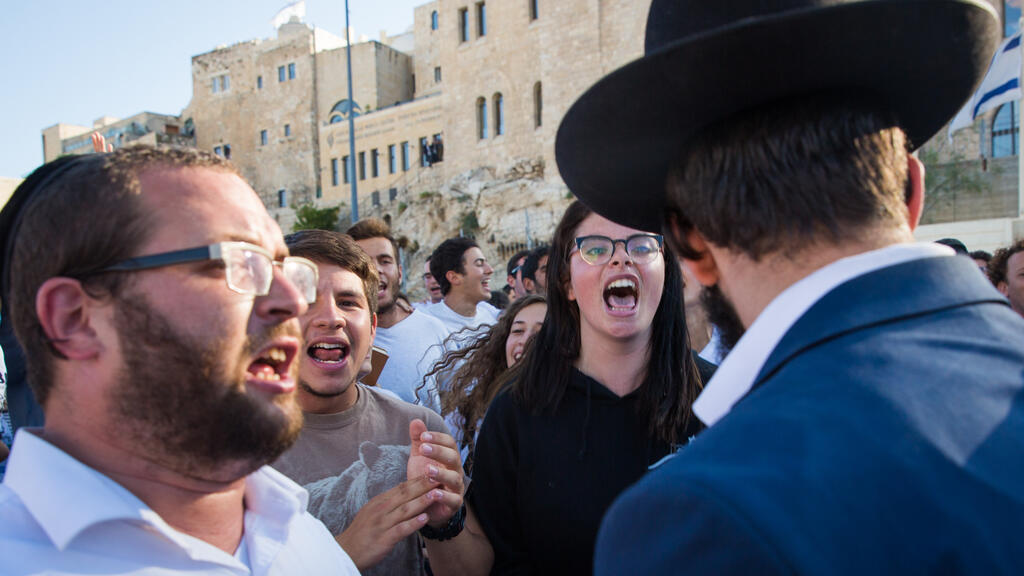Getting your Trinity Audio player ready...
A Jewish prayer book was vandalized at Jerusalem's Western Wall on Thursday as a group of ultra-Orthodox men and youths protested against liberal Jewish denominations that frequent the holy site.
One of the protesters was seen tearing a page out of a prayer book, or siddur in Hebrew, and using it to blow his nose repeatedly, trying to provoke a group that was holding a bar mitzvah at the site's egalitarian section.
Ultra-Orthodox protester blows his nose with a page torn out of a prayer book at the Western Wall in Jerusalem
(Photo: The Masorti Movement)
The incident took place as members of Jewish feminist organization Women of the Wall held their monthly prayer service there. The group seeks to secure the rights of women to pray at the site in a fashion that includes singing, reading aloud from the Torah and wearing religious garments.
Members of the ultra-Orthodox community have long taken issue with the group's presence at the Western Wall — a vestige of the ancient Jewish Temple and the holiest place in Judaism — and consider it a form of provocation.
One of the protesters who was also seen desecreating a book was the young son of a Knesset lawmaker, who said it was a mitzvah, or holy precept, to burn a Torah book written by heretics, referring to Conservative and Reform Jews.
Rabbi Ari Hassid, a Conservative rabbi who was conducting the bar mitzvah, said in a Facebook post that several protesters were hurling expletives at the bar mitzvah boy and even called him a “Nazi”.
“I struggle to find the words to describe my experience at the [egaltarian section] this morning,” he wrote.
“I hoped this charming, shy but determined boy would not be subjected to this hate. Instead, dozens of young men and boys whistled and yelled at him, calling him a 'Christian', a 'Nazi' and more. An American boy who wanted to celebrate coming of age. A boy who could have forgotten any connection to the people and Land of Israel, but chose to celebrate in Israel with his parents, grandparents and other relatives.
Rabbi Hassid says the boy was unfazed by the abuse hurled at him, but he struggled to accept the situation.
“I am broken. There are people who hate me. That are willing to hurt me because my Judaism is different from their Judaism. Most people, as religious or conservative as they are, aren’t like that. But they exist. And if those who oppose them, those who believe we have the right to be mistaken at the very least, won’t make their voices heard – we’ll all lose.”





